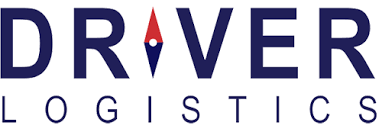- 11 May 2023
- 4 Minutes to read
-
Contributors

-
Print
-
DarkLight
3rd Party Logistics
- Updated on 11 May 2023
- 4 Minutes to read
-
Contributors

-
Print
-
DarkLight
Third Party Logistics, also known as 3PL, is a service that provides companies with an outsourced logistics solution. 3PL providers offer a range of services that include transportation, warehousing, inventory management, order fulfillment, and other supply chain management functions. In this article, we will discuss the benefits of using 3PL services, the types of 3PL providers, and the considerations to keep in mind when selecting a 3PL provider.

Benefits of 3PL
1. Cost Savings
3PL providers can leverage their expertise, technology, and network of carriers and suppliers to optimize supply chain operations and reduce costs. By outsourcing logistics activities, companies can save on capital expenses, such as warehousing and transportation equipment, and operational expenses, such as labor and maintenance.
2. Improved Efficiency
3PL providers can offer a range of logistics services, from transportation to warehousing, that are designed to streamline operations and increase efficiency. They can also provide advanced technology solutions, such as warehouse management systems and transportation management systems, that can improve visibility, accuracy, and speed.
3. Scalability and Flexibility
3PL providers can help companies quickly scale up or down their logistics operations to meet changing business needs. They can also offer flexible pricing models and customized solutions that can adapt to specific requirements.
4. Improved Customer Service
3PL providers can help companies improve their customer service by providing faster delivery times, real-time tracking and visibility, and efficient order fulfillment.
5. Access to Expertise and Resources
3PL providers have a team of logistics experts who specialize in various areas of the supply chain. They also have access to a network of carriers, suppliers, and industry partners that can provide additional resources and support.
6. Improved Inventory Management
3PL providers can help companies optimize their inventory levels by providing accurate demand forecasting, real-time inventory tracking, and efficient order fulfillment. This can reduce inventory carrying costs and prevent stockouts and overstocking.
7. Reduced Time-To-Market
3PL providers can help companies speed up their time-to-market by providing faster transportation and delivery times, efficient order processing, and real-time visibility into supply chain operations.
8. Better Data Analysis
3PL providers can provide data analytics and reporting tools that can help companies gain insights into their supply chain operations. This can help identify areas for improvement and drive continuous improvement.
Types of 3PL Providers
Transportation-based 3PL Providers: These providers focus primarily on transportation services, such as freight forwarding, carrier management, and shipment tracking. They help companies move their products from one location to another, and they may provide additional services like customs brokerage or documentation management. Transportation-based 3PL providers often have a network of carriers and shipping partners that they work with to offer the best pricing and shipping options to their clients.
Warehouse-based 3PL Providers: These providers offer warehousing and distribution services, including inventory management, order fulfillment, cross-docking, and value-added services such as packaging, assembly, and labeling. They may also provide transportation services, either through their own fleet or by partnering with transportation-based 3PL providers. Warehouse-based 3PL providers often have multiple warehouse locations across different regions, which allows them to offer fast and cost-effective shipping options.
Integrated 3PL Providers: These providers offer a full range of logistics services, including transportation, warehousing, and value-added services. They are capable of managing the entire supply chain for their clients, from sourcing and procurement to final delivery. Integrated 3PL providers often have the most comprehensive logistics solutions and can offer customized services to meet the unique needs of their clients.
Considerations When Selecting a 3PL Provider
Services Offered: Before selecting a 3PL provider, it is important to have a clear understanding of your logistics needs and requirements. Determine the services you need, such as transportation, warehousing, or value-added services, and ensure the 3PL provider has the capability and experience to deliver these services effectively.
Industry Experience: Look for a 3PL provider that has experience in your industry or a related industry. This can be particularly important if you have unique logistics challenges or requirements, such as regulatory compliance or specialized handling of products.
Technology Capabilities: A good 3PL provider should have modern and robust technology capabilities that can integrate with your existing systems and provide real-time visibility into your supply chain. This can include transportation management systems, warehouse management systems, and other tools that can help streamline your operations and improve your visibility.
Scalability: Your logistics needs may change over time, so it is important to choose a 3PL provider that can scale its services up or down as needed to meet your changing needs. This can include the ability to flexibly adjust storage space, staffing levels, or transportation capacity.
Geographic Reach: Consider the 3PL provider's geographic reach and its ability to support your logistics needs in the regions where you do business. This can include having a network of warehouses and transportation partners in key regions, as well as experience navigating local regulations and customs requirements.
Service Level Agreements: Ensure the 3PL provider offers clear and enforceable service level agreements (SLAs) that define the level of service and performance standards you can expect. SLAs should include metrics such as on-time delivery, order accuracy, and inventory accuracy.
Cost: Understand the 3PL provider's pricing model and ensure that it aligns with your budget and expected return on investment. This can include understanding any hidden fees, such as storage or handling fees, and negotiating pricing based on volume or other factors.


